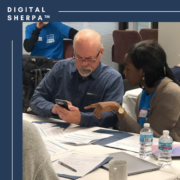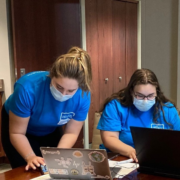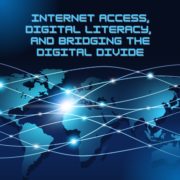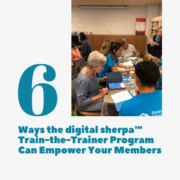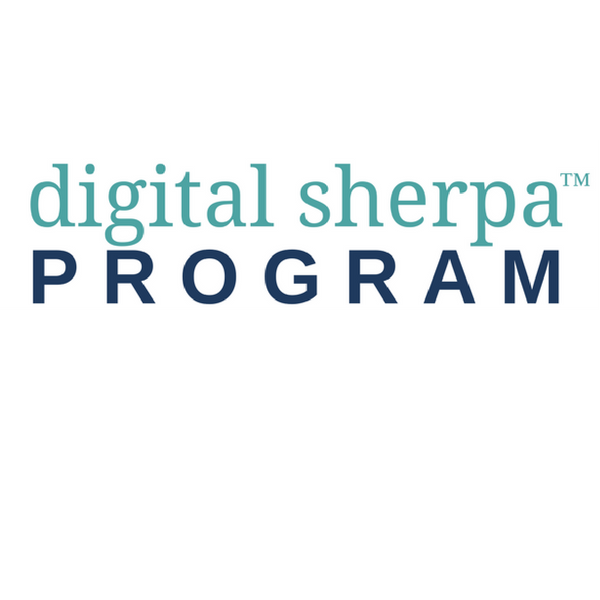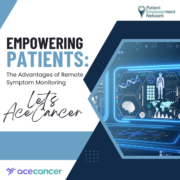Questions Answered About digital sherpa®
After participating in a digital sherpa® workshop with Cancer Support Community in Ann Arbor, MI, we sat down with a student volunteer (“sherpa”) and a cancer patient (“slimber”) and asked about their experience.
Climber
1. What do you think are the benefits of social media and technology to people with cancer and care partners?
Personally, I think that technology is very helpful. To be able to communicate with a doctor’s office outside of work hours helps when I have a non-urgent question.
I’m still figuring out how social media is helpful. Doctor’s are so busy that to ask for interaction in real-time would be unfair, to them and to patients. However, it is helpful to be able to communicate in real-time with other patients and caregivers who are going through the same type of issues.
2. What do you think are the main barriers to people using technology to assist them on their cancer journey?
A main barrier from my perspective is that when someone get diagnosed with cancer, there is a sudden jump from very few doctors to too many doctors and offices. Suddenly, everyone wants to give me information, get information from me and know how I am. This is not all attainable from one place, so many of web addresses suddenly need to be found, remembered, passwords added and remembered, etc. With treatment brain fog, fatigue or age related issues, this is very difficult.
3. What are your thoughts on working with the students today? Do you think each generation has something to learn/teach other generations? If so, what?
Working with the students was great! Their familiarity with the web and the pages was very helpful.
We do have things to teach each other and points of contact and building communication with common ground start the process.
4. Was there anything that surprised you about today’s workshop?
How easy it was and how much information is available.
5. What is one thing (or more!) that you learned at today’s workshop?
I learned about the Registry, Healthtunes, and , although I don’t need it now, ridesharing.
sherpa
1. Why did you volunteer with the digital sherpa® Program?
I volunteered with the digital sherpa® Program because I resonated with the mission of the program – to empower patients. Although patients go to health care facilities to address concerns about their own bodies, the complexities of treatment, especially cancer treatment, can pose barriers to playing an active role in their care. I think the digital sherpa® Program is a great way to help patients access resources in their journey and connect with other people with similar experiences. I also thought the sherpa Program was an easy way to help others, especially since I’ve grown up with technology all around me.
2. What surprised you the most about your experience today?
What surprised me the most was how the man I was paired with held onto every word I spoke and looked at me expectantly. When I talked about the resources provided by the cancer support community and how to fill out the demographic information, he listened whole-heartedly and I felt the weight of my words. It was a unique experience taking the lead and being able to give advice.
3. What are your thoughts on working with the participants today? Do you think each generation has something to learn from/teach other generations? If so, what?
I enjoyed working with the participants because I was paired with a man who was his wife’s caregiver. When he was unsure about whether to join an online support group, he turned to her. I think our generation can learn from the older generation that sometimes less is more, and it is important to keep your information secure. When I asked my participant if he wanted the website to save his password he said no because a person shouldn’t stay logged in.
4. Based on what you experienced today, what do you think are the main barriers to older people using technology to assist them on their cancer journey?
One barrier is not having a person to turn to for help or the ability to search for solutions on the internet. Typically if I have trouble with a device, I google to try to find a solution. Another barrier is it’s constantly changing – apps, software updates, etc, so they may get used to one piece of technology, and then it changes.
5. Based on what you experienced today, what do you think are the benefits of social media and technology to people with cancer and their care partners?
During my experience, I saw a more clear benefit of technology rather than social media. One woman was able to save pdfs of articles from WebMD to the home screen of her iPad, and another man was able to join the cancer support community facebook page. Also, knowing how to access online resources such as chats, and support from licensed counselors through the phone is very beneficial as well.
6. Is there anything that you learned or saw today that changed any opinions or assumptions you may have had about people living with cancer?
Working with the participants exposed an assumption I had related to people with cancer: people with cancer as very sick and having to deal with numerous medications. Although I didn’t know what medications the participants I was paired with were on, I did notice that they were all in different stages of health. Also, I learned that cancer patients express a lot of agency when deciding with resources to take advantage of. From the list from the digital sherpa® “cheat sheet,” only a few were of interest to my participant’s wife (patient) because she already has been receiving a lot of emails.

